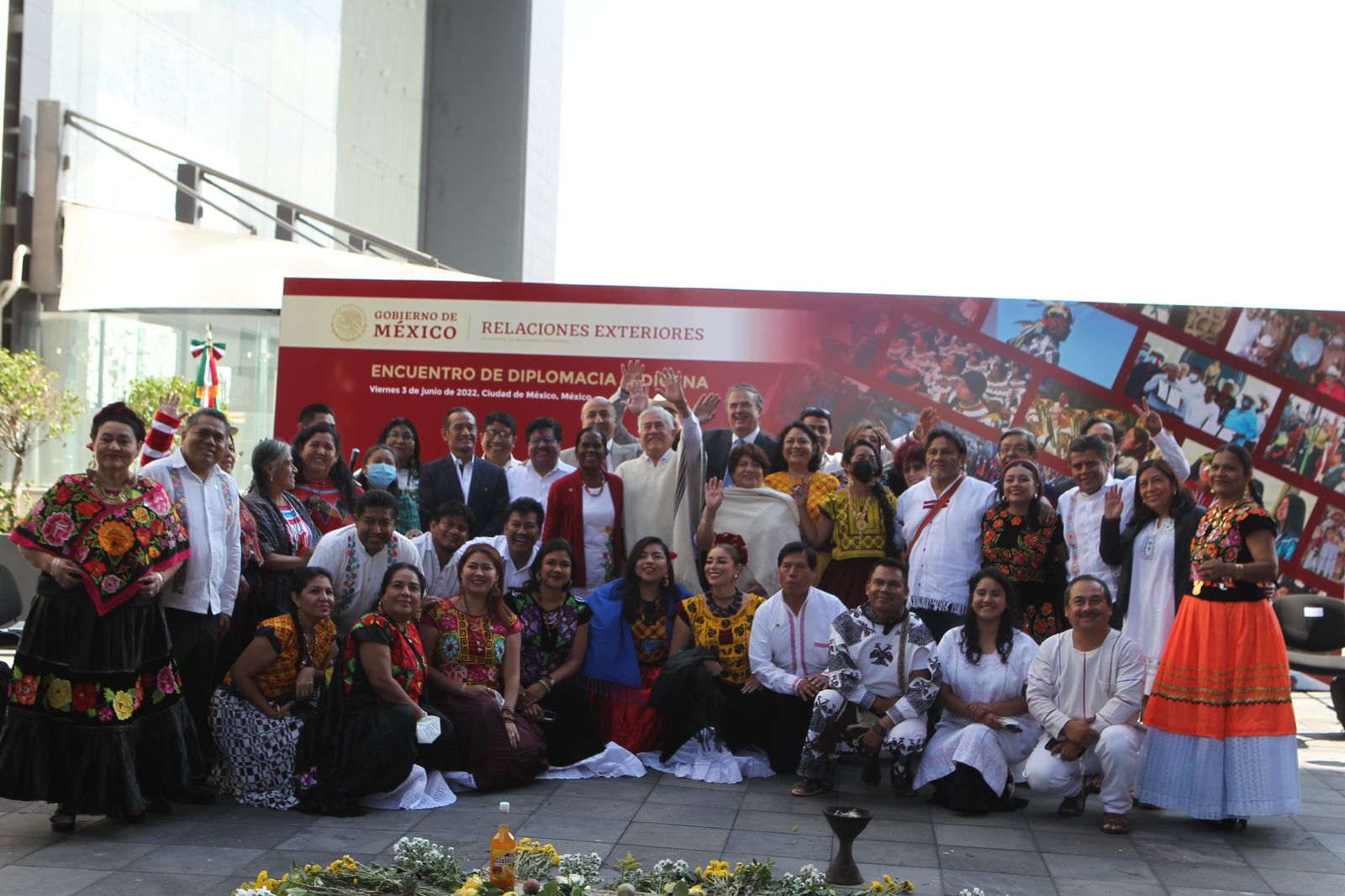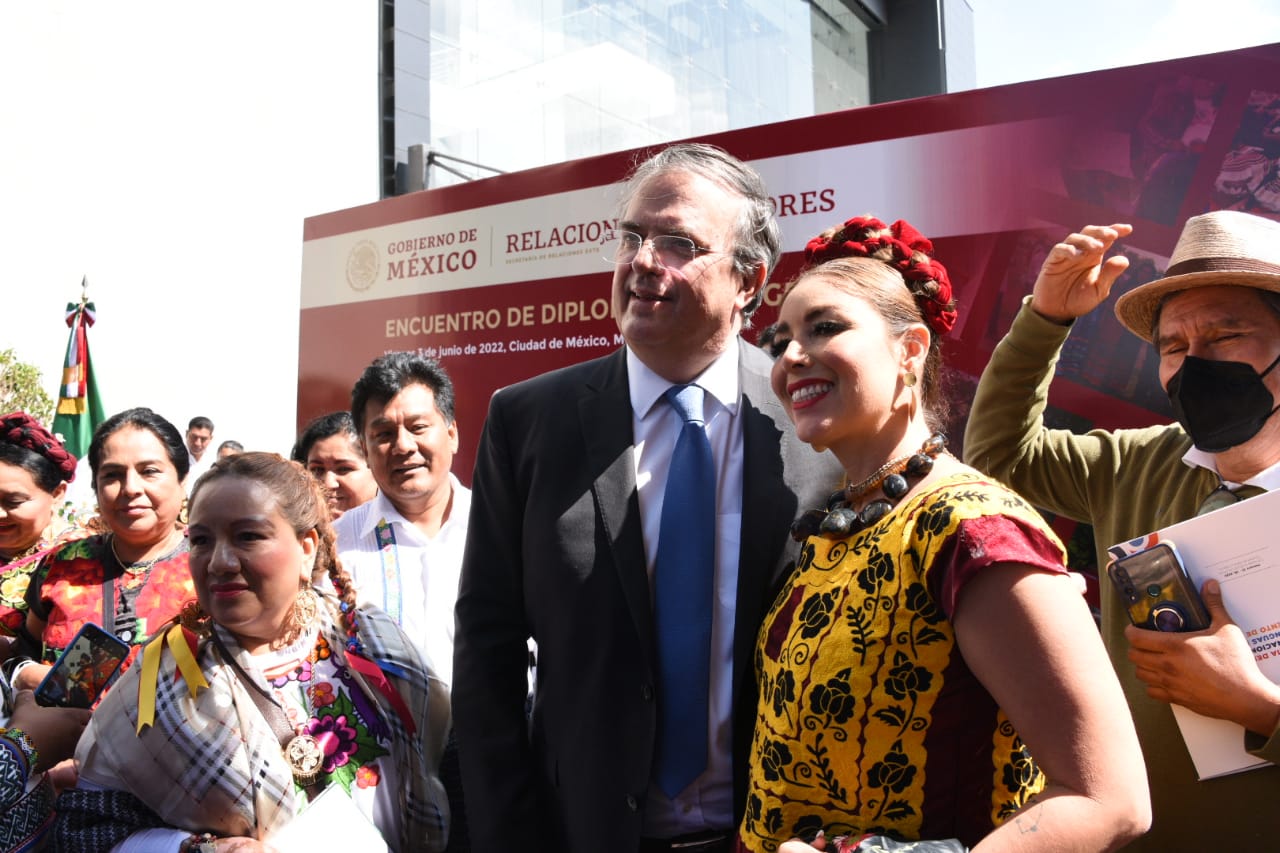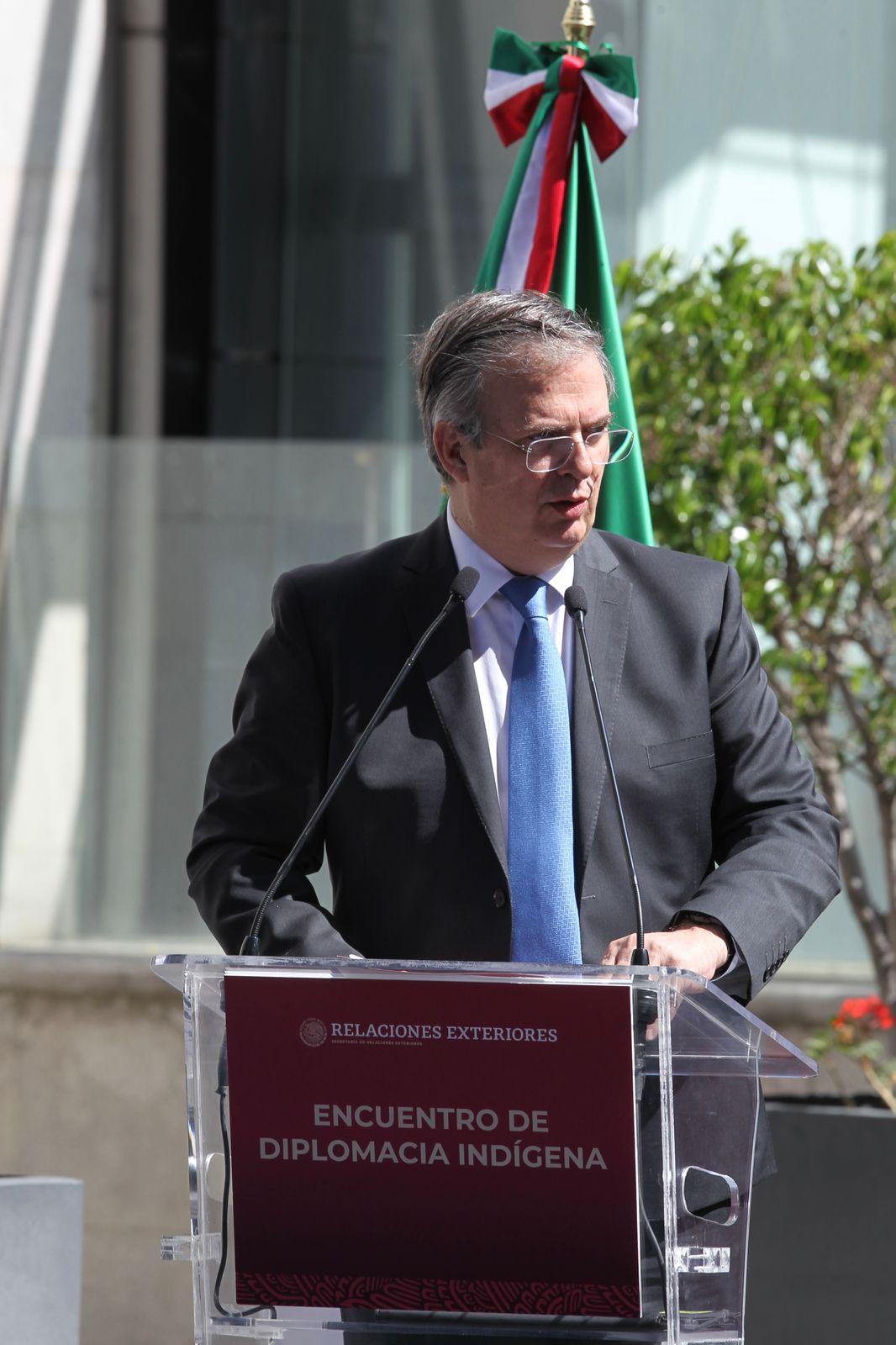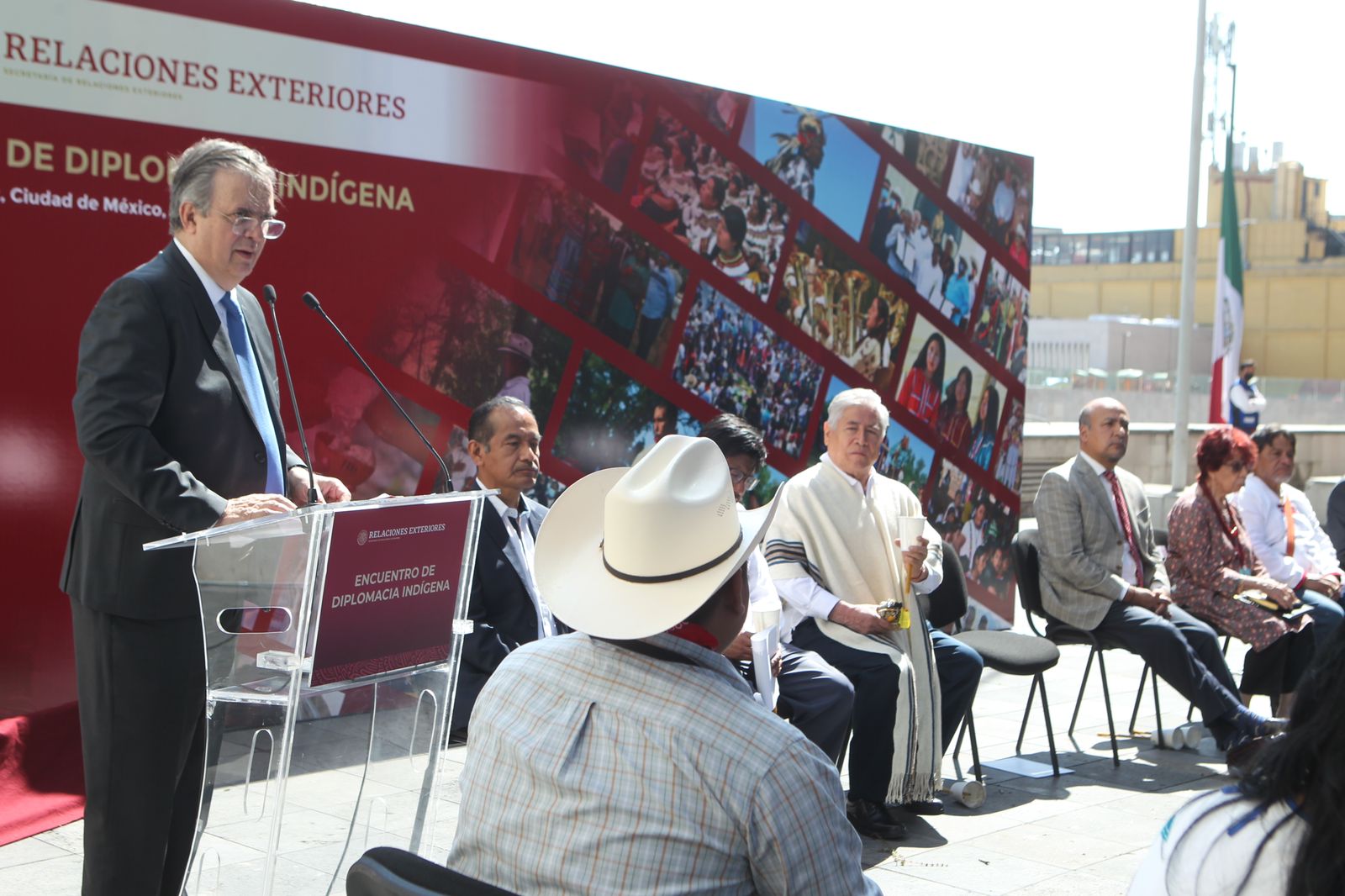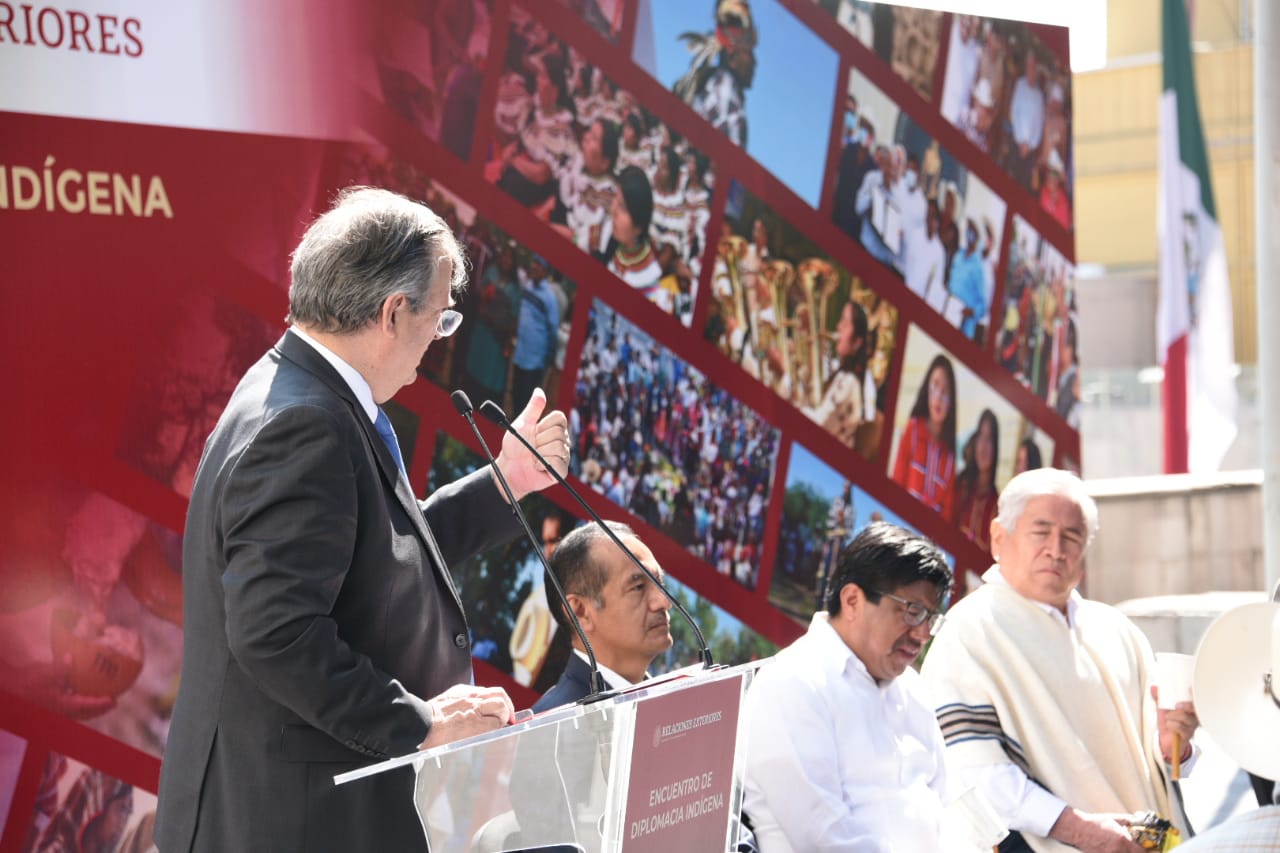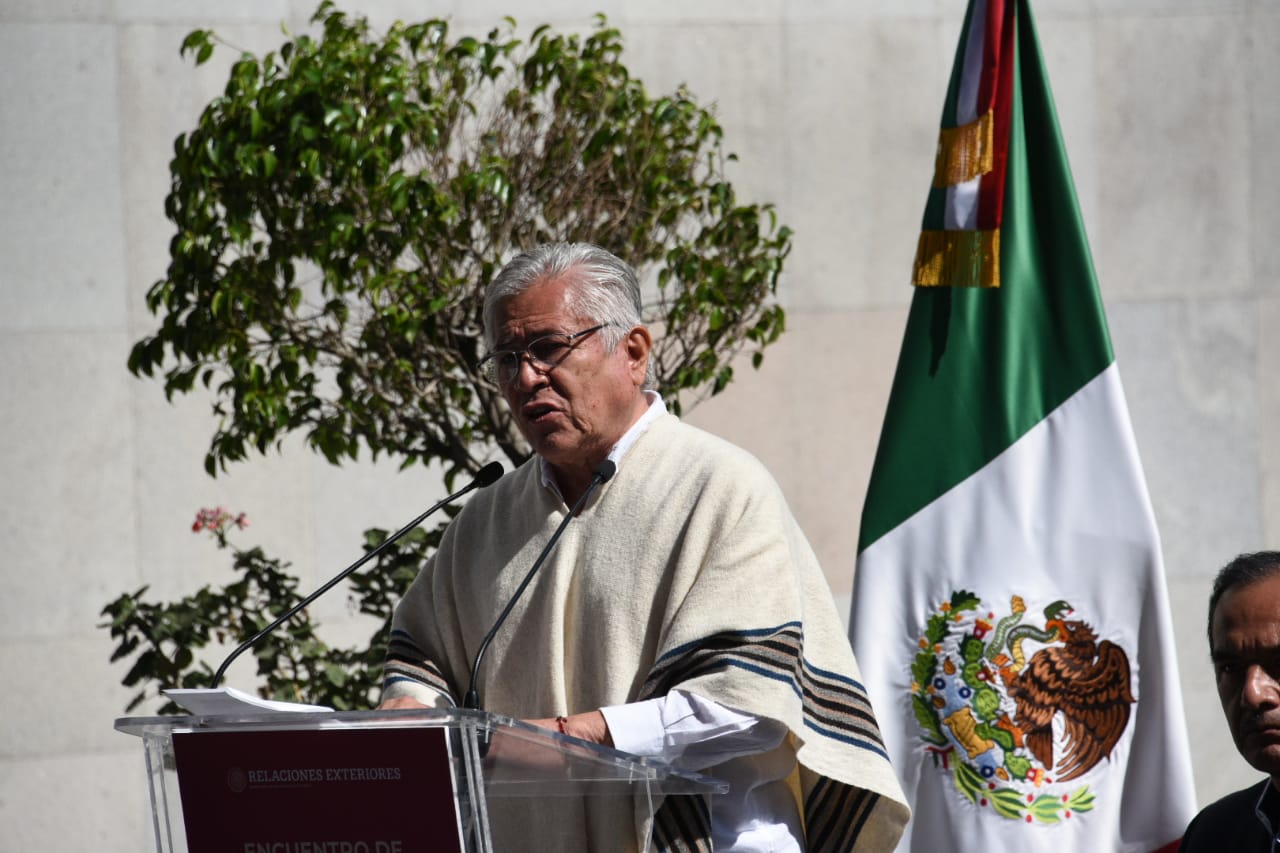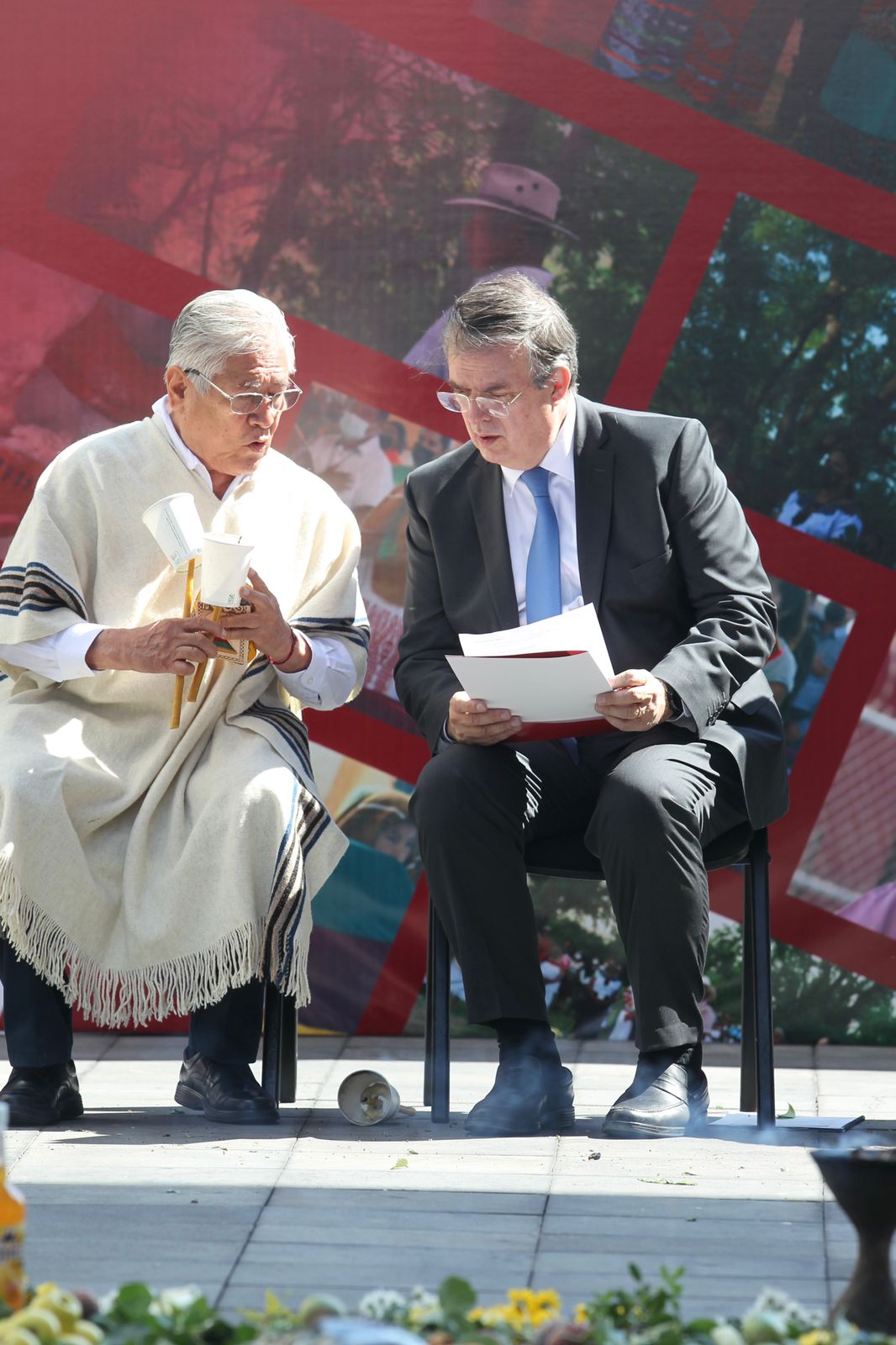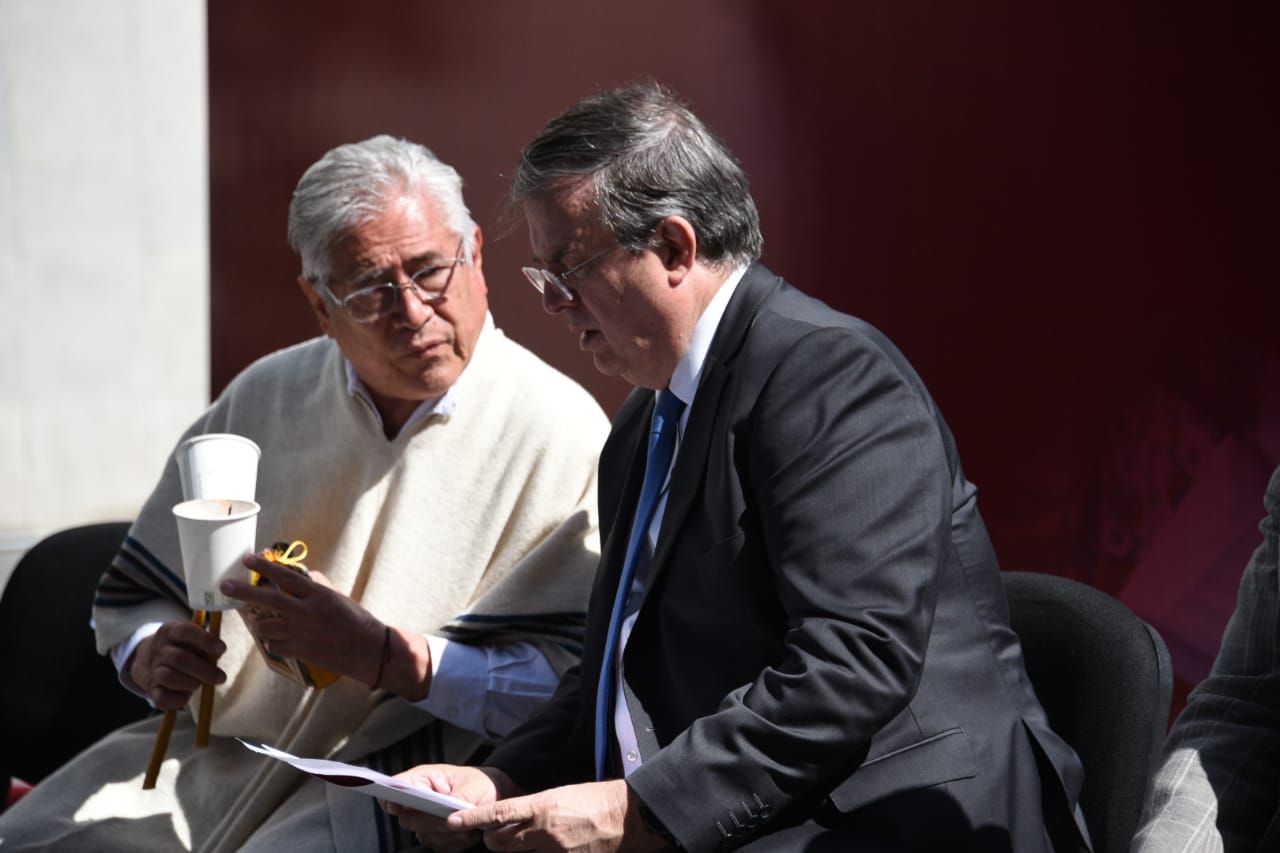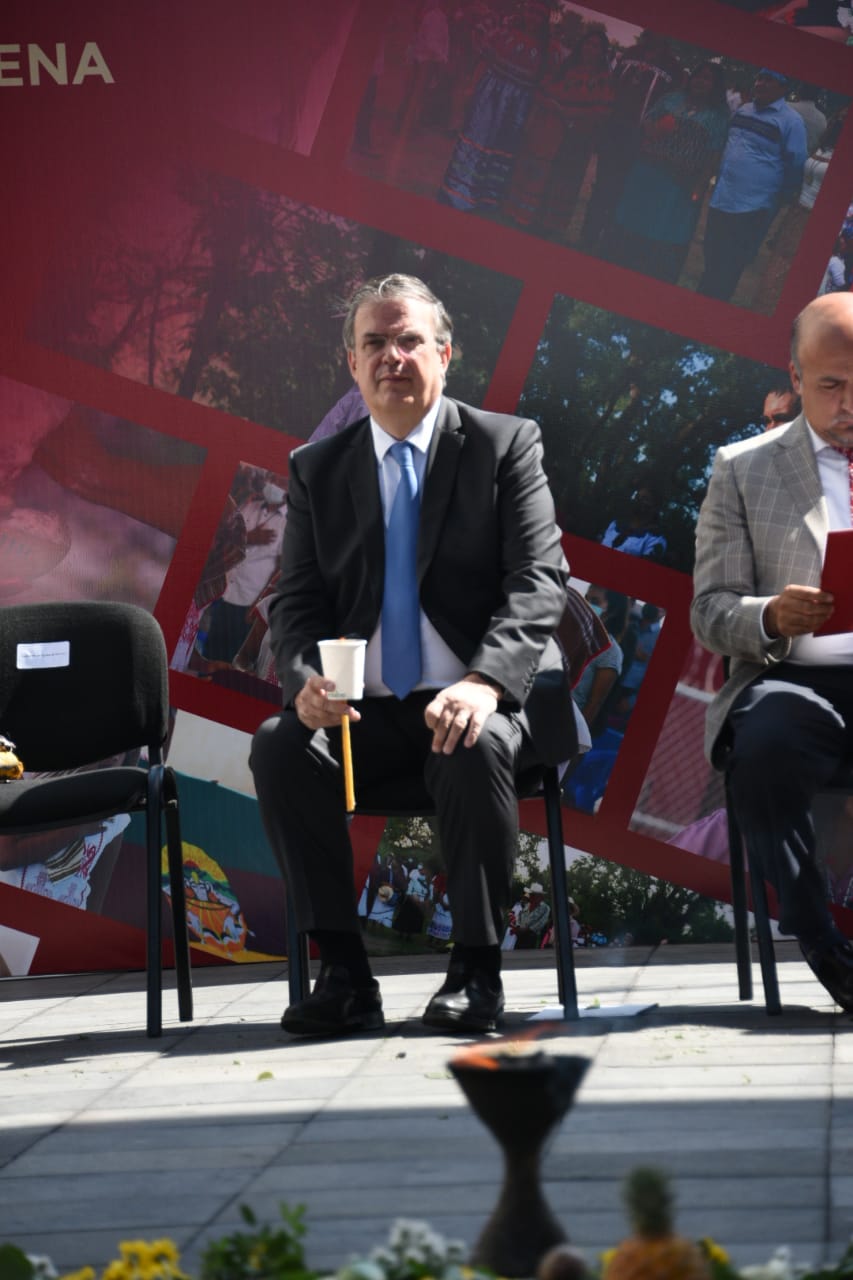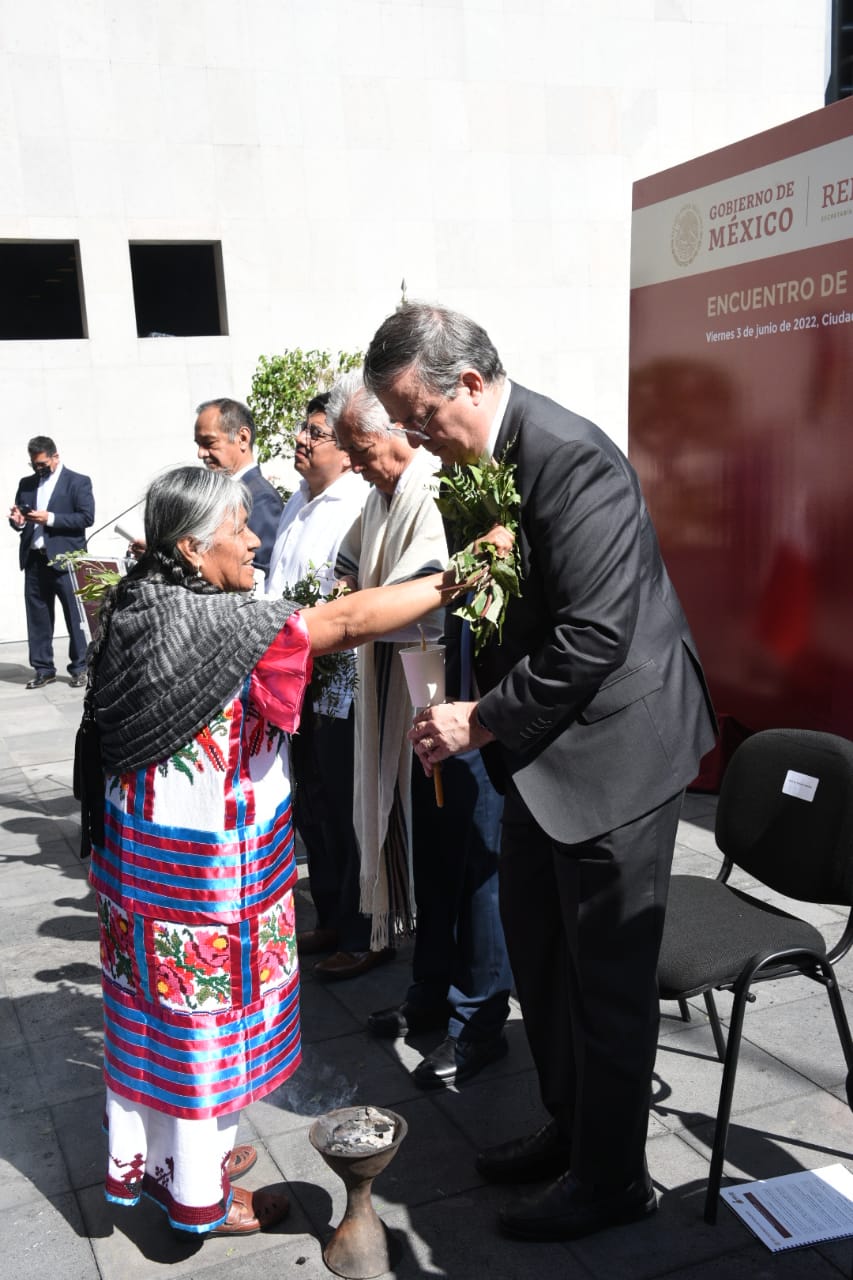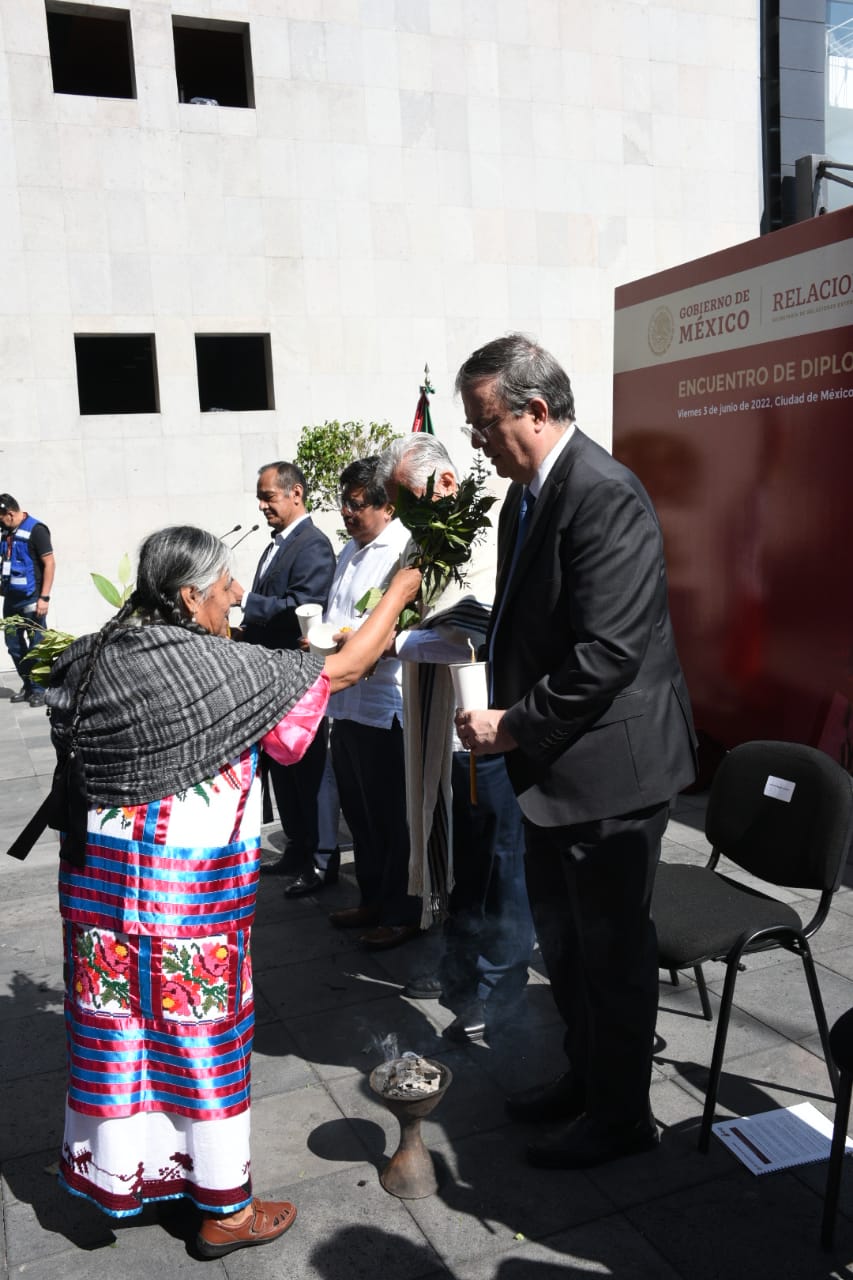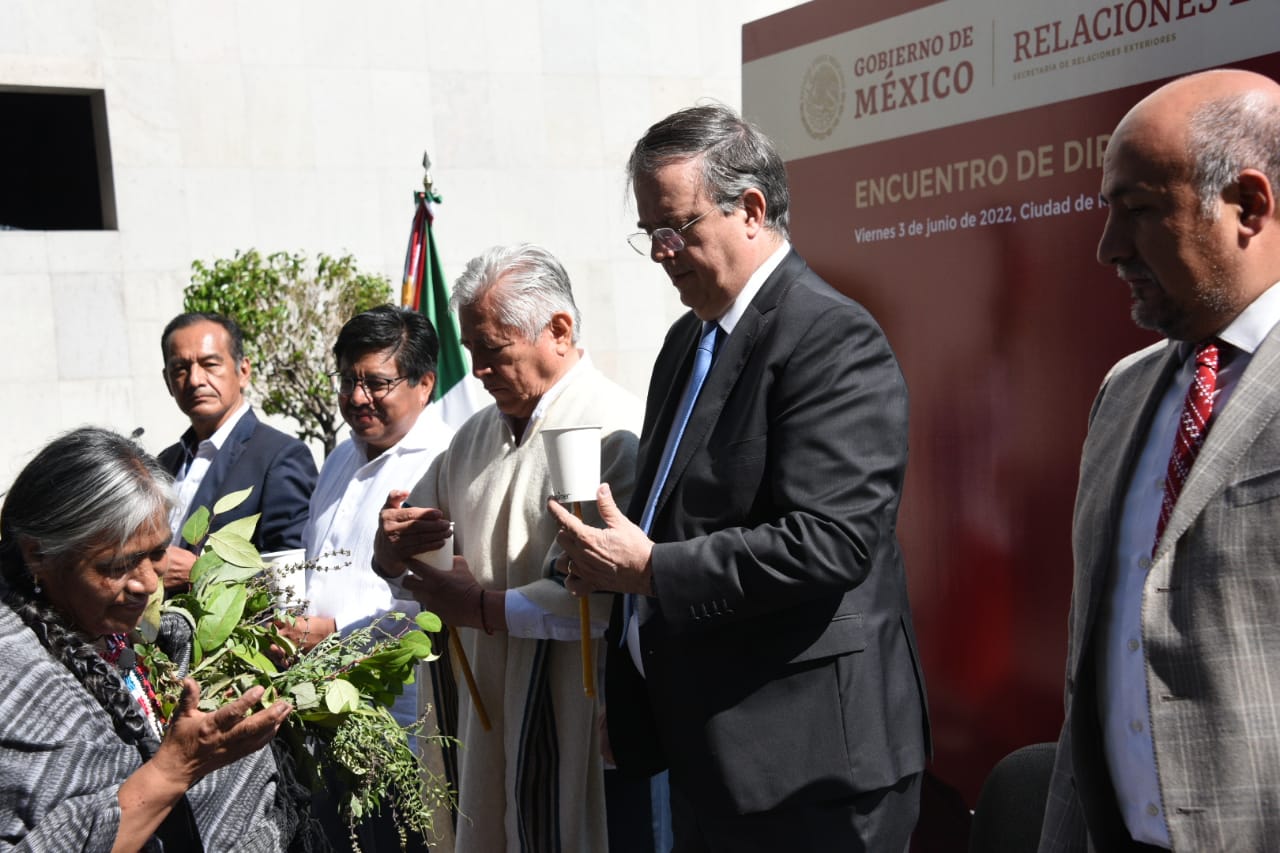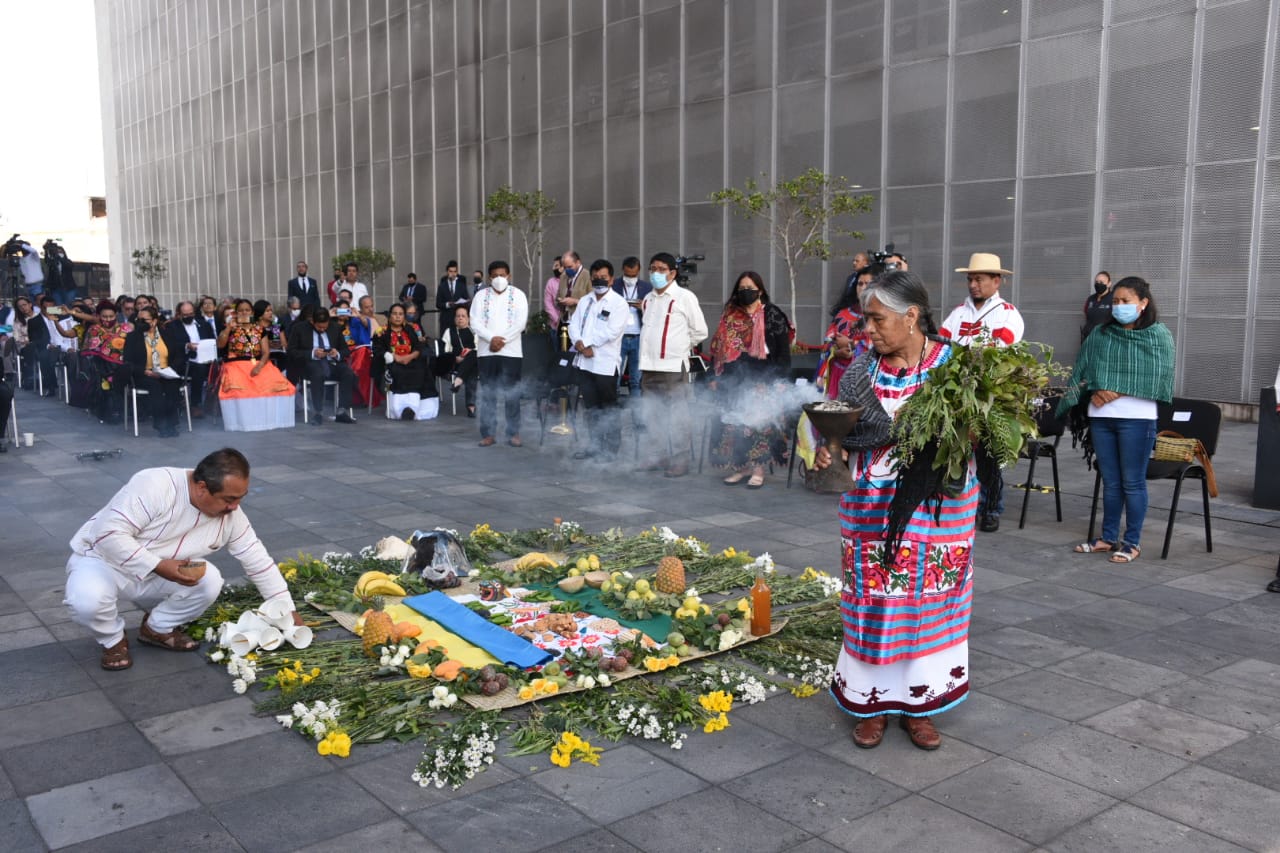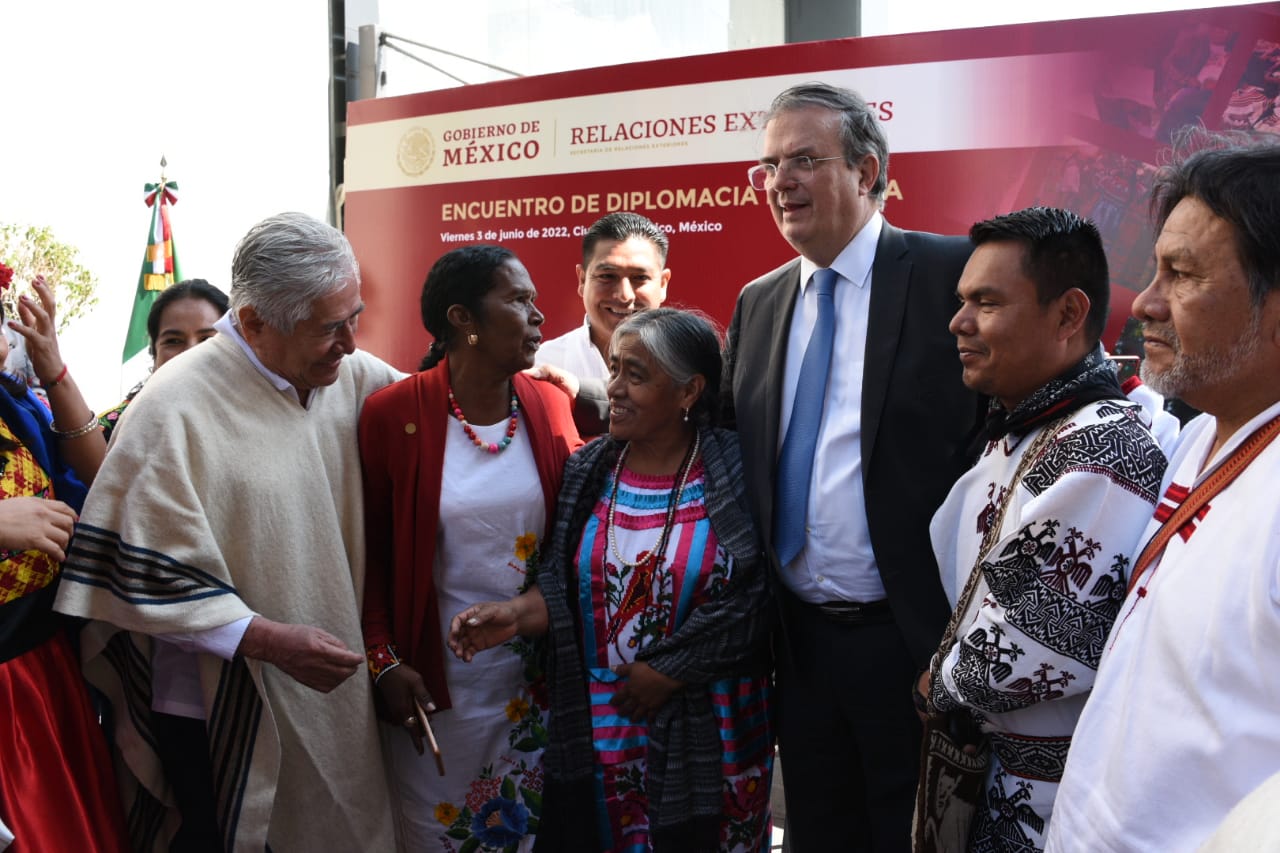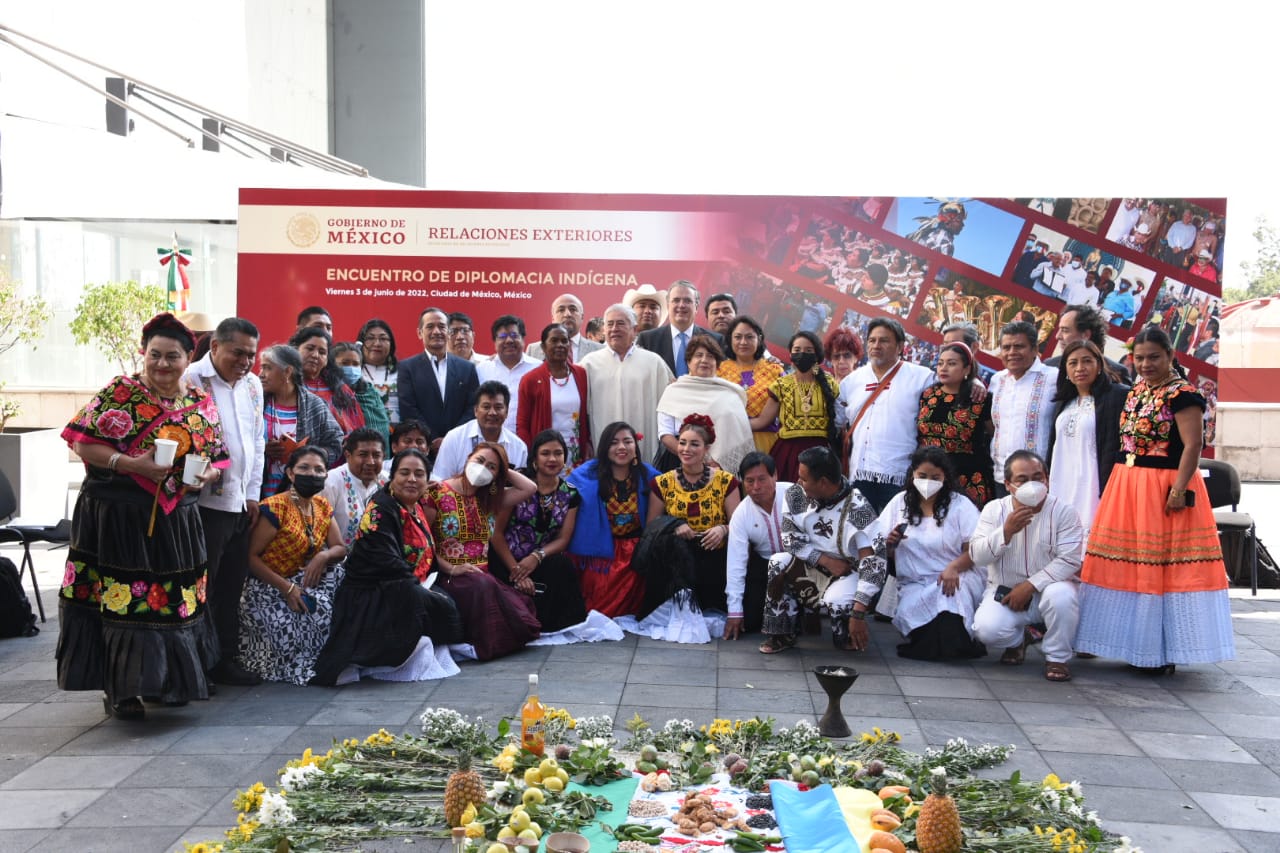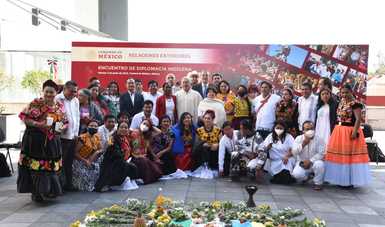The Mexican government headed by President Andrés Manuel López Obrador has put the spotlight on the country's indigenous and Afro-Mexican peoples, including in matters of foreign policy, by appointing the Zapotec social fighter from Juchitán, Oaxaca, Leopoldo de Gyves de la Cruz, as ambassador of Mexico in Venezuela. He will be the country's first indigenous ambassador.
Today, a meeting on indigenous diplomacy was held at the Foreign Ministry. It began with a purification and communion ceremony led by traditional doctor Teresa de Jesús Ríos García, a Mazatec from Huautla de Jiménez, to celebrate the appointment of Leopoldo de Gyves de la Cruz as ambassador-designate to Venezuela, the first ambassador who identifies as indigenous and speaks an indigenous language.
Participating in the ceremony were Foreign Secretary Marcelo Ebrard; 25 representatives of indigenous peoples from various states; the heads of the national institutes of Indigenous Peoples, Adelfo Regino Montes, and Indigenous Languages, Juan Gregorio Regino, in addition to the Latin American diplomatic corps in Mexico.
Mexico has an unwavering commitment to inclusion and to promoting multiculturalism and multilingualism. These types of actions are vital for conducting a needed dialogue with the indigenous representatives of the American peoples.
In his remarks, Foreign Secretary Ebrard reiterated that indigenous peoples enrich the nation, and that it is vitally important to recognize their cultural, social and linguistic contribution to our heritage as Mexicans.
"We have to defend our native languages, our ways of thinking, our beliefs, because this diversity in which we live is what makes us strong." "There may be great powers, but few countries have Mexico's diversity, and that is what has given Mexico its strength, its history, but also its future," he said.
Regarding the designation of De Gyves as the first indigenous ambassador, the Foreign Secretary said “a new stage begins today in Mexico's representation abroad [...] now indigenous diplomacy occupies a prominent place, not only in statements but also in acts." The new ambassador "will represent all of Mexico on equal terms," he said. Therefore, it is the duty of each one of us and of the institutions to strengthen the defense of their rights, beginning with their self-determination.
Secretary Ebrard also highlighted the work of President López Obrador to encourage the inclusion and visibility of indigenous peoples in national and international political activities.
The Director General of the National Institute of Indigenous Peoples (INPI), Adelfo Regino Montes, said that indigenous diplomacy is a key element in building plurinational states through respectful dialogue.
He said that thanks to diplomacy and the support of the Foreign Ministry, it has been possible for international legal instruments such as the United Nations Declaration on the Rights of Indigenous Peoples to contribute to good relations.
This event marks an important cultural and historical precedent in Mexican diplomacy, and is an invitation to recognize the incalculable value of the indigenous peoples' contribution to Mexico's cultural heritage. The event was held during the International Decade of Indigenous Languages, which was adopted to draw attention to the serious loss of indigenous languages around the world and the urgent need to preserve, revitalize and promote them.
